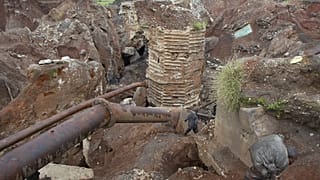Nigeria
Hundreds of commuters were among the first to travel on a newly launched light railway in Nigeria’s capital, Abuja this week
The passengers were permitted to ride the light rail system, which connects the international airport with other parts of the city.
The first phase which took took 11 years to construct also covers 12 stations, 21 operational offices, 13 bridges, 50 culverts and nine pedestrian overpasses.
President Muhammadu Buhari officially opened the light rail system last week.
“It’s timed and there is no obstruction, no hold up so it’s a very perfect arrangement and I think this will impact positively on the economy you know, on the economy of this country. When this is replicated all over the place there will be less pressure on our roads,” said passenger Daniel Ajone.
Nigeria has the largest economy in West Africa but growth in the continent’s top oil producer has for decades been stunted by its poor transport infrastructure.
The construction of the light rail and its use is expected to open up new towns and boost economic activities.
“Directly we are looking at employing at least one thousand people, directly, now indirectly we looking at over twenty thousand people being employed.”
Buhari’s government has been looking for partners to overhaul its aging railway system,” said Anthony Agbakoba a resident engineer.
Nigeria’s rail lines were mainly built by British colonial rulers decades ago.
The government plans to revamp about 3,500 km of existing narrow-gauge lines











01:02
Mass layoffs cast shadow over Guinea’s Simandou mega-mine as output begins
11:17
Nigeria on edge as Trump threatens sanctions and military action {Business Africa}
Go to video
Overcrowded train crash in Eastern Ethiopia kills 14
Go to video
Nigeria lifts state of emergency in Rivers State after six months
Go to video
Nigeria's maternal mortality rates prompt urgent community initiatives
Go to video
From 3.1% to 7%: Tinubu sets ambitious growth goal for 2027